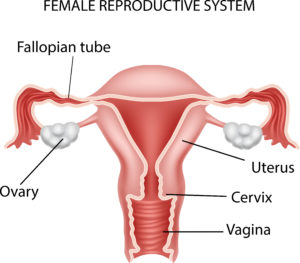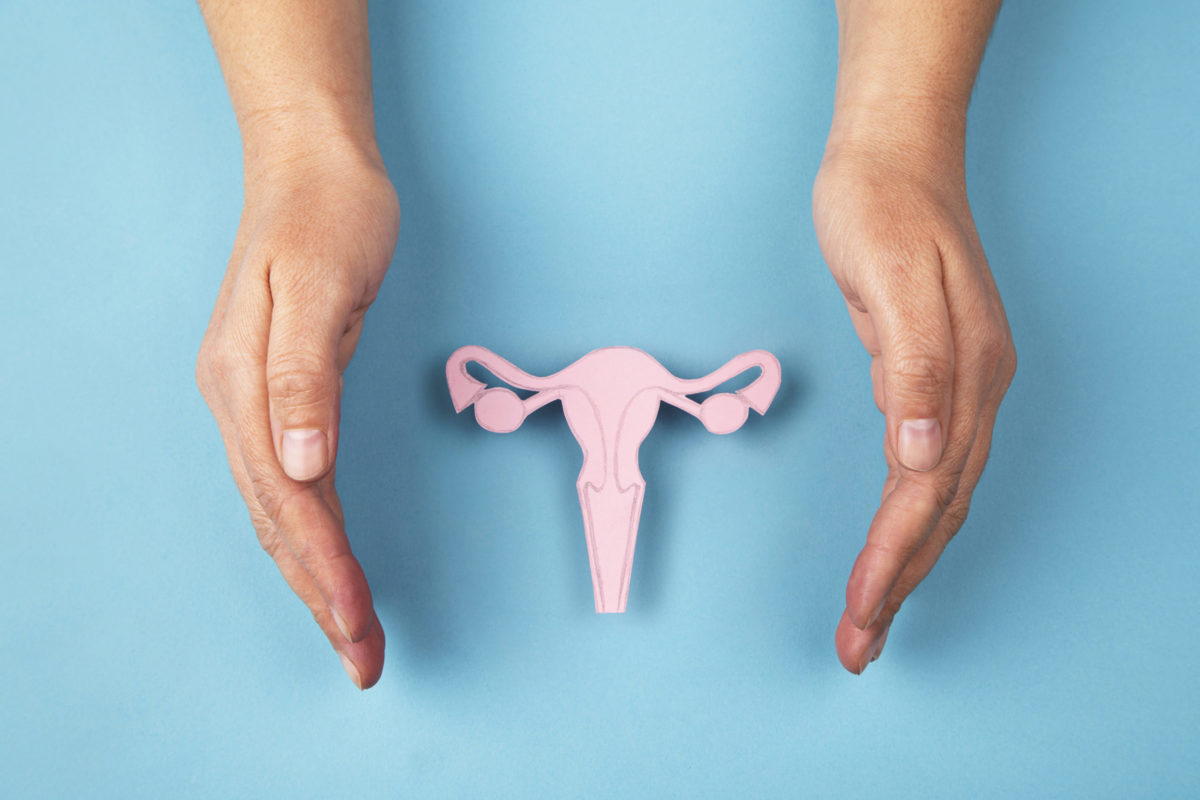Cervical cancer is the fourth most common cancer in females, yet 20% haven’t been screened.
“Screenings lowered the death rate of cervical cancer astronomically,” says Dr. Robert Yates, an OB/GYN and corporate medical director for BlueCross BlueShield of Tennessee in Memphis. “Cervical cancer was the #1 killer of females, and now those numbers are way down.”
Here are 10 things to know about cervical cancer, including prevention.
1. Most people can’t identify the cervix on a diagram.
In a study, only 1/3 of females could correctly place these 6 labels: vulva, vagina, cervix, uterus, fallopian tubes.
The cervix is the lower, narrow end of a female’s uterus. It is usually roughly an inch long and cylindrical in shape.

2. Using birth control pills for 5+ years increases risk.
Other risk factors include:
- Smoking
- Having HIV or another condition that weakens the immune system
- Having given birth to 3 or more children
- Having multiple sexual partners
3. Some groups have an increased risk.
“Besides higher rates of diseases like cancer, LGBTQ+ people are more susceptible to mental health issues like anxiety, depression and suicide,” says Del Ray Zimmerman, director of the Office for Diversity Affairs and LGBTQ Health at Vanderbilt University Medical Center.
“When you study the issue, you find there’s nothing inherently wrong with this group, but our mental and physical health suffers because of the biases we face over our lives.”
So besides an increased risk of cervical cancer, lesbians also have a higher risk of breast and ovarian cancer.
LGBTQ health spotlight: 10 health care needs to know
4. There are 2 tests to detect the early signs.
- The HPV test checks for human papillomavirus, a sexually transmitted virus which causes cervical cancer.
- A Pap smear detects abnormal cervical cells as part of a pelvic exam.
7 things to know before your next visit to the gynecologist
5. The HPV vaccine helps prevent it.
Most people in the country have HPV — about 80%. The HPV vaccine can be given to children starting at age 9. By age 12, children should have had 2 doses for best protection.
“Initially, there was a struggle because parents thought, ‘HPV is an STD, and my child is not sexually active, so they don’t need it’,” says Dr. Jeanne James, chief medical officer for BlueCare Tennessee. “But that’s not the case. Most people will become sexually active at some point, and females won’t have symptoms of cervical cancer until it’s very far along. That’s extremely dangerous, which is why everyone should get vaccinated.”
5 things parents should know about childhood vaccines
6. 21 is the age to start testing.
The CDC recommends that females start getting Pap tests at age 21, with follow-ups every 3 years. The test is named after Georgios Papanikolaou, the doctor who determined the test could be used to detect early signs of cervical cancer.’
Adult health check guide: What to get screened for when
7. 47 is the age most develop it.
“The peak age for diagnosis is 47, but almost half of females with invasive cervical cancer are younger than 35 at diagnosis,” says Dr. Edwin Thorpe, an OB-GYN and medical director for BlueCross BlueShield of Tennessee. “Women over 65 account for 10% of cervical cancer diagnoses.”
Cervical cancer screenings: What do you need to know?
8. In the last 40 years, it has declined by more than 50%.
Experts associate this decline with regular use of the Pap test. Since those started in the 1950s, cervical cancer rates have decreased by more than 70%.
9. When caught early, it’s highly curable.
The 5-year survival rate for those diagnosed is 75%.
10. Tennessee ranks #10 in the country for getting regular screenings.
Nearly 15% still don’t get screened despite the fact that screening is highly effective.
“Cervical cancer in its advanced stages is a terrible disease,” says Dr. Yates. “Fortunately, when you get screened and catch it early, it is curable.”
All articles from WellTuned on cervical cancer
Get more information about specific health terms, topics and conditions to better manage your health on bcbst.com. BlueCross BlueShield of Tennessee members can access wellness-related discounts on fitness products, gym memberships, healthy eating and more through Blue365®. BCBST members can also find tools and resources to help improve health and well-being by logging into BlueAccess and going to the Managing Your Health tab.


